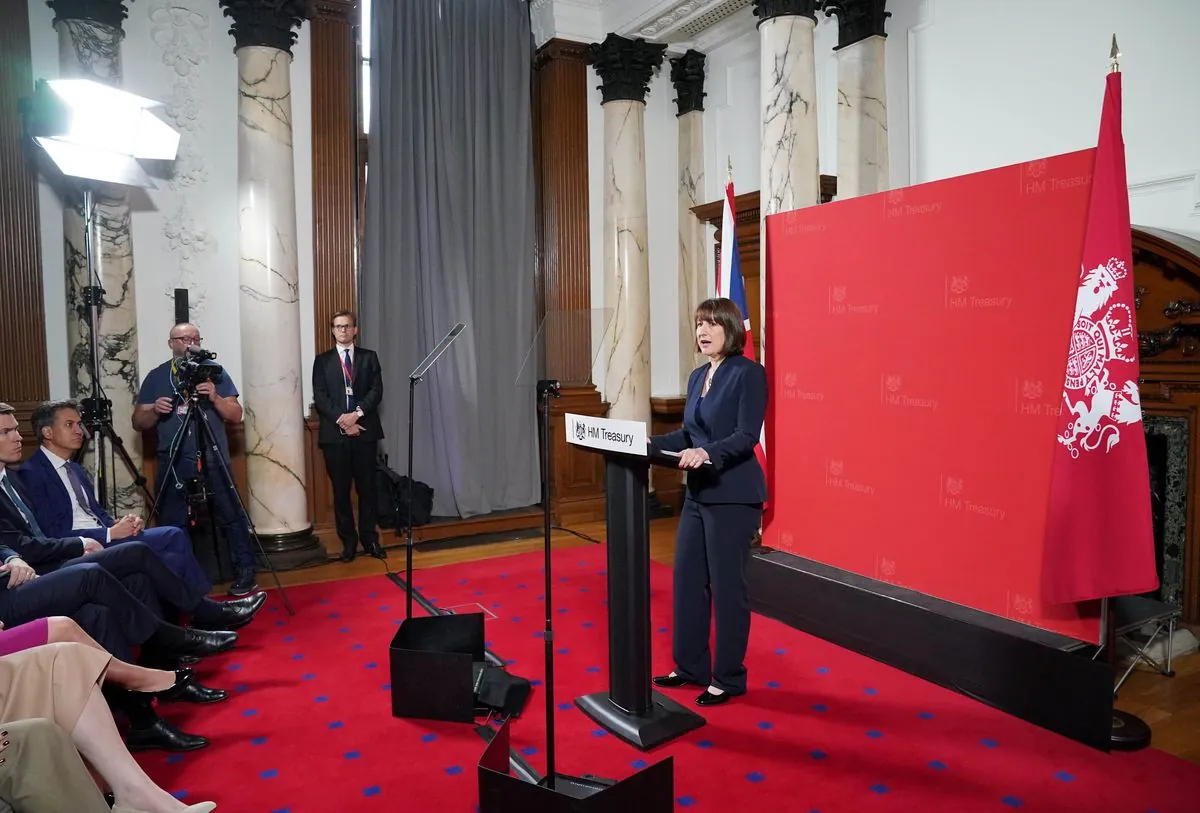Labour Chancellor Under Scrutiny for Potential Code Breaches
Rachel Reeves faces investigation over Treasury appointment. Concerns raised about conflict of interest and transparency in Labour's recent appointments following election victory.

In a development that has sparked concerns about potential cronyism, Rachel Reeves, the Chancellor of the Exchequer, is facing scrutiny from the ministerial standards watchdog. The issue centers around the appointment of Ian Corfield to a director position at the Treasury, a move that has raised questions about transparency and possible conflicts of interest.
Laura Trott, the shadow chief secretary to the Treasury, has formally requested an investigation into potential breaches of the ministerial code by Reeves. The request was made to Sir Laurie Magnus, the Prime Minister's independent adviser on ministers' interests, a position established in 2006 to ensure ethical conduct among government officials.
The controversy stems from the revelation that Corfield, who was appointed to the Treasury shortly after Labour's election victory last month, had previously made significant donations to the Labour Party. These donations included £5,000 to Reeves in 2023, raising concerns about a potential conflict of interest.

The appointment process for Corfield's position has come under scrutiny, as it was not subject to an open contest. This deviation from standard practices has led to questions about the transparency of the selection process. The Civil Service Commission, established in 1855 to oversee fair and open competition for civil service appointments, reportedly was not informed about Corfield's previous donations.
"Under the ministerial code ministers must, within 14 days of appointment, 'provide their permanent secretary with a full list in writing of all interests which might be thought to give rise to a conflict'. This does not seem to have happened."
The situation has highlighted the importance of the ministerial code, a set of rules and principles that outline the standards of conduct for government ministers in the UK. This code, which emphasizes the need to avoid both actual and perceived conflicts of interest, is a cornerstone of ethical governance in the British political system.
Government sources have stated that Corfield was brought in on a short-term contract to assist with organizing an international investment summit scheduled for October 2024. While Whitehall's recruitment rules allow for exceptions to the normal fair and open competition process for short-term appointments, the circumstances surrounding Corfield's selection have nonetheless raised eyebrows.
This incident is not isolated, as Labour has faced a growing number of controversies related to appointments since their general election victory in July. Another notable case involves Emily Middleton, a businesswoman whose firm donated £67,000 to Labour, who was subsequently appointed as a director general in the Department for Science and Technology.
These developments have reignited discussions about the need for greater transparency and stricter regulations regarding political appointments and donations. The UK's Electoral Commission, which regulates political donations, may face increased pressure to review and potentially strengthen its oversight mechanisms.
As the situation unfolds, it remains to be seen how Rachel Reeves and the Labour government will address these concerns and what impact this scrutiny may have on future appointments and governance practices.


































